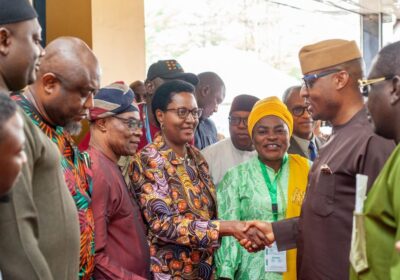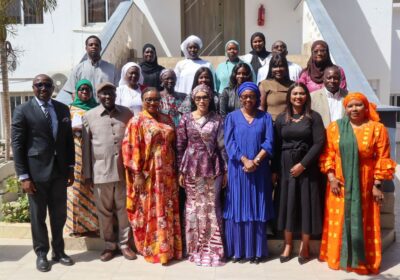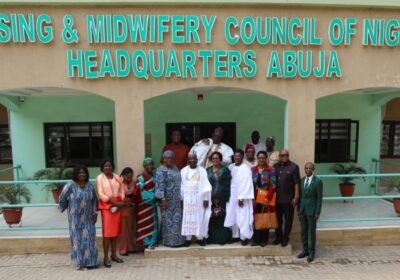Cuba takes lead in addressing racism: hosts International Decade for People of African Descent conference 2015-2024
By Raymond Enoch
The United Nations commemorated the end of the International Decade for People of African Descent 2015-2024 with a conference themed “Equality – Equity – Social Justice.”
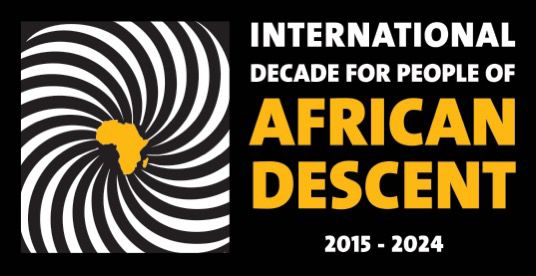
Over 100 delegates came from 18 countries representing North America, Central America, the Caribbean, South America and Africa attended the conference.
Delegates, including representatives from international organizations such as the Diaspora Division in the African Union, spent a week attending plenary sessions, workshops and touring the country to learn about Cuba’s work against racism and discrimination.
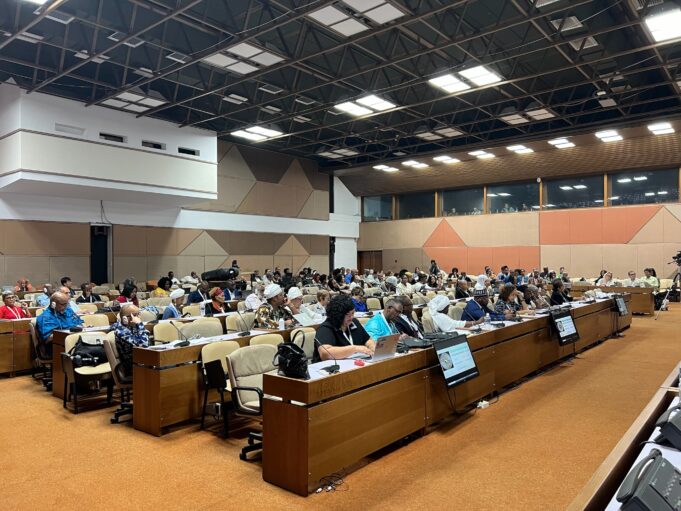
“Fifty-two years ago, the foundation was laid for a strong and mutually beneficial relationship between CARICOM (Caribbean Community) and Cuba. It is noteworthy that over the course of five decades, this relationship has grown in strength and stature, being formally underpinned by Technical Cooperation Agreements and Memoranda of Understanding.
“Our collaboration is not merely symbolic. CARICOM and Cuba, through a partnership based on mutual respect, independence and sovereignty, have built a strong and lasting relationship allowing for concrete actions to be taken for the betterment of our peoples,” Dr. Carla Barnett said.
A group of delegates—including acclaimed actor Danny Glover, Barbadian David Dennys, secretary general of the Caribbean Peace Movement and Geoffroy De Laforcade, professor of history at Norfolk State University—were welcomed to the island nation by Miguel Díaz-Canel Bermúdez, President and First Secretary of the Central Committee of the Party.
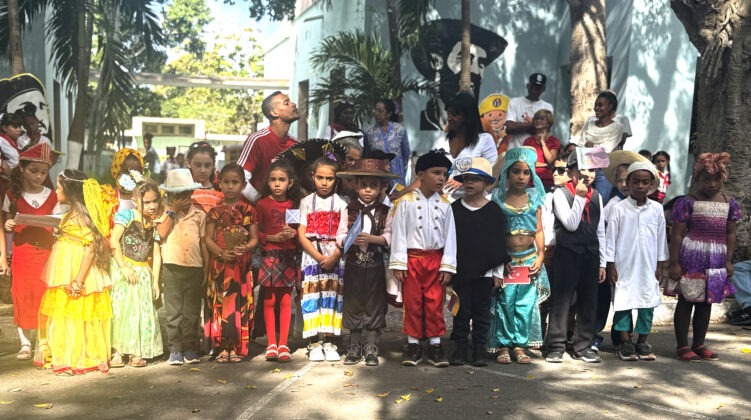
Cuban children perform their love for diversity and the people of African descent.
“A meeting like this strengthens us; you have been thanking Cuba, but we have to thank you very much, because you have given us a lot of energy with your participation,” he said
“Cuba attaches high value to the fight against discrimination based on skin color.”
Despite a decades-long crippling U.S. embargo against the small island nation which has caused hardships for generations of Cubans, the country is stepping out front when it comes to addressing racism.
Colette Pean, one of the founders of New York’s December 12th Movement, an organization for the rights of Black Americans, thanked President Díaz-Canel on behalf of her organization, and the Cuban people, who “have acted in terms of leadership and a future of resistance.”
“We very much follow in the spirit of Malcolm X, we have to take our struggle from civil rights to human rights. A significant part of our work is our international work” she declared.
“We started going to Geneva to the Human Rights Commission to raise issues of racism. While there we learned so much from the Cuban delegation. They told us, you must come regularly.”
Historically, the December 12th Movement has always been involved in the pushback against the blockade and U.S. sanctions. They supported Cuba when they responded to Africa’s call for assistance with liberation movements in Angola and throughout Southern Africa. Their goal is to make sure people know what the Cuban Revolution is, what it has done for Black people, and globally for Africans.
In 1959, after a six-year war, the Cuban Revolution led by Fidel Castro overthrew the U.S.-backed dictator Fulgencio Batista. The revolution profoundly reshaped Cuba’s political, social, and economic landscape and had far-reaching implications for the global Cold War era. Comandante Castro’s revolutionary government nationalized industries, redistributed land, and pursued socialist policies.
Rolando Julio Rensoli, president of the event’s organizing committee and secretary of the executive coordinating group of the Cuban Color program against racism and racial discrimination, welcomes the delegates to the conference.
America saw Castro as a threat to its influence in the Western Hemisphere. In 1961, America tried to invade Cuba with the infamous Bay of Pigs Invasion. It was a failed military operation by Cuban exiles, backed by the United States, to overthrow Fidel Castro’s government.
This attempted invasion marked a significant Cold War flashpoint and strained U.S.-Cuban relations, further cementing Cuba’s alignment with the then-Soviet Union. The U.S. responded in 1962 with the longest-running economic sanctions that continued today.
The embargo restricts trade between the U.S. and Cuba, including food and medicine. However, some exceptions exist under specific licenses. U.S. citizens are generally prohibited from traveling to Cuba for tourism purposes.
However, there are exceptions for family visits, educational exchanges, and religious activities. U.S. banks and financial institutions are restricted from conducting business with Cuban entities.
This makes it difficult for Cuba to access international banking and financing. The embargo has significantly hindered Cuba’s economic development, leading to shortages of essential goods and services.
Since 1992, the United Nations General Assembly has annually endorsed a resolution calling for the termination of the United States embargo against Cuba. Once again, the U.S. stood virtually alone in its stance toward Cuba with a world vote of 187 for lifting the embargo but the U.S. vetoed the Resolution.
Performers welcome delegation members in Matanzas with music and dance. Photos: Michael Spencer
While the U.S. government asserts that its actions against Cuba aim to “promote human rights” and “democracy,” the reality is that American sanctions have significantly hindered Cuba’s economic and social progress, exacerbating a humanitarian crisis.
After two days of workshops, including “The Role of Education in Institutions in Teaching Values of Anti-Racism” and in the “Struggle against Biased Behaviors in the Teaching Education Process” and “People of African Descent and their Challenges in the Americas,” delegates witnessed what Cuba is able to accomplish despite the American embargo.
The group toured the Museum of Literacy which celebrates the country’s efforts to reduce the 40 percent rate of illiteracy at the time of the revolution to a near zero percent illiteracy rate today. The group also visited an elementary school and watched a performance by the students celebrating diversity. The delegates also visited a university charged with educating teachers how to teach a love for diversity.
The group also toured Matanzas, a major destination for enslaved Africans, brought to work on the sugar plantations.
The city is deeply connected to the history of the transatlantic slave trade and the subsequent development of Afro-Cuban culture. The delegates also learned about African religions that are practiced in Cuba.
Everywhere the group traveled they were treated to music from local bands and dances from welcoming children. While there, the December 12th Movement donated medical supplies to a hospital.
James Early, activist and Smithsonian Institute retiree, has been coming to Cuba for decades. He told The Final Call, “In Cuba we see something different than in America, because Cuba has been able to promote a path of possibilities, of a new world, with the triumphant Revolution of 1959, which confronted racism, which sowed awareness in the people, and mapping the sociological reality of racism.”
The International Decade for People of African Descent was proclaimed by the UN General Assembly in 2013 by a resolution Proclamation of the International Decade for People of African Descent to be observed around the world from 2015 to 2024.
The conference was co-sponsored by the Cuban Color program against racism and racial discrimination and the Cuba Office of the United Nations Population Fund (UNFPA).
“This International Year offers a unique opportunity to redouble our efforts to fight against racism, racial discrimination, xenophobia and related intolerance that affect people of African descent everywhere,” explained Navi Pillay, UN High Commissioner for Human Rights, in a statement.
During the decade, groups held activities such as “Ending Slavery’s Legacy of Racism: A Global Imperative for Justice in 2021” and “Towards Eliminating Systemic Racism and Discrimination Against People of African Descent in 2023.” The theme for the International Decade is “People of African descent: Recognition, Justice and Development.”
Rep. Barbara Lee (D-Calif.) came to the conference as part of her work with the Congressional Black Caucus Initiative (CBCI), whose mission is to educate today’s voters and train tomorrow’s leaders.
In 2017, she was successful in getting the CBCI Special Consultative Status with the United Nations Economic and Social Council, explained Dorothy Davis, representative of the CBCI Global African Diaspora Initiative.
Ms. Davis told The Final Call, “Since 2018, we have been working on building relationships as the UN and the Global African Diaspora, for the purpose of bringing the voices of African Americans into the UN and to reconstruct African American history with the UN.
“Our goal is to reinstate our visibility in international affairs, all across the board, but also to create a pathway for African American students or people, period, to think about and pursue careers in the international field. When you go internationally, you don’t really see a whole lot of us in the mix. That’s what we’re trying to change.”
Artifacts and pictures from the Rebel Slave Museum in Matanzas.
Abdulrahman Abbe Terab, an African activist, traveled from Nigeria to the conference. He explained to The Final Call, that his country would not be able to work for their rights without Cuba, where in every corner “there is the Nigerian, the Yoruba, there is Changó (symbol of strength and justice).”
“The world has to understand that Nigeria and Cuba not only have similarities but that they
are one people.”



